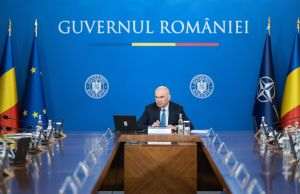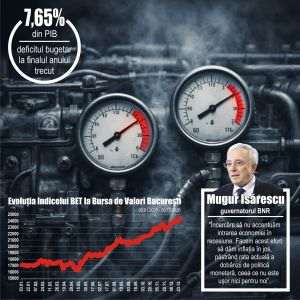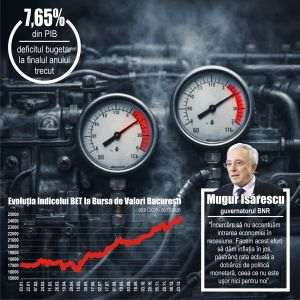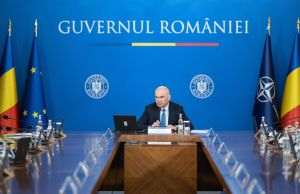Greece's "glory" days, when any negotiation of the new plans for the "rescue" held the front page of the European newspaper, are in the past.
Now "Greece is ready to turn a corner", according to Pierre Moscovici, the European commissioner for economic and financial news, after the first meeting of the Eurogroup.
Press agencies report that an agreement has been reached concerning the passing of short term measures for the reduction of the public debt burden, which include the rescheduling of some payments and the adjustment of some interest rates.
The International Monetary Fund, the third pillar of the creditors' Troika, has not yet accepted that and continues to ask for the application of a new debt reduction, so that it becomes bearable, as well as the continuation of the austerity programs.
Even though the authorities in Athens have accepted the measures adopted in the Eurogroup meeting, once they got home they also "discovered" their true meaning. The measures for relieving the burden of the public debt will be applicable until 2060 and are subject to achieving the creation of a budget surplus of approximately 3.5% of the GDP over a ten year period, which will begin after the completion of the current bail-out program, in 2018.
Apparently no one knows why the new proposals of the European creditors are realistic. What will be extremely realistic and painful will be the new taxes provided in the draft budget for 2017.
According to an article from French newspaper Le Monde, new taxes will be introduced for personal vehicles, landline phones, TVs, fuel, tobacco, coffee and beer.
Unfortunately, those taxes are missing one item, because there haven't been dance taxes introduced, as is happening in Brussels, where the local authorities have "rediscovered" a tax that was approved in the "50s and they send people undercover in bars and restaurants to make sure it is paid.
Of course, the "optimism" displayed by the European and the Greek authorities is completely out of place. "The agreement of the Eurogroup represents a chance for Greece to turn a corner", said Euclid Tsakalotos, finance minister in the government led by Alexis Tsipras, except his statement was made in spring this year, according to daily Kathimerini.
Nobody expected miracles right away back then, but there are no signals that Greece is ready to turn a corner, just like nobody expects the new tax hikes and the newly introduced taxes to generate a virtuous circle of growth. As strange as it may seem, the notion of "virtuous circle of economic growth" actually exists in the discourse of the authorities in Athens.
As always their optimism runs smack dab into the attitude of German finance minister Wolfgang Schäuble. On the day of the referendum in Italy, Schäuble said, in an interview he gave Bild am Sonntag, that "Athens needs to finally apply the necessary reforms, or else it has no room in the Eurozone".
The unsustainable level of Greece's public debt does not impress the German finance minister, who says that "the debt service is not that much of a burden due to the low interest rates". When faced with such a statement, comments and arguments are superfluous.
Does anybody still believe that these "people" can get Europe out of the crisis, regardless of the "unity" that remains afterwards?
Beyond the nature of the statements made by Wolfgang Schäuble, what is truly remarkable is their synchronization with another "earthquake" in the Eurozone.
The rejection of the constitutional "reform" proposed by the Renzi government has raised serious questions over the stability of the Italian banking system but has also opened a doorway for avoiding the application of the European bail-in directive.
Financial Times has recently launched a new call to the Italian state to support the country's banking sector, as sources close to the operation for the rescue of the Monte dei Paschi bank have stated that the odds of success of the recapitalization plan were only 50%, even if the Italians had voted "yes" in the constitutional referendum.
"The time has come for the authorities to stop avoiding the resolution of the problem, because what is at stake is not just the Italian banking system, but also the financial outlook of the EU", FT further writes.
Speculation has appeared almost immediately in the international press. "The government will become a majority shareholder in the bank through a 2 billion Euros injection", Reuters further wrote. The amount would be used for the acquisition of subordinated bonds held by retail investors, which would then be converted to stock care, according to a source quoted by the press agency.
Are the authorities in Rome trying to apply the European bail-in procedure themselves in order to prove to the Germans that they are follow the rules?
"Compared to the current dispute between Germany and Italy over the rescue of the banking system, Brexit is a secondary show, while Greece is a secondary show to the secondary show", James Rickards, the author of "The Road to Ruin" and "The death of money", recently wrote in an article published by The Daily Reckoning.
"If Germany forces Italy to use the bail-in procedure for Monte dei Paschi, then Italy will insist for Germany to use the same procedure for Deutsche Bank when the time comes", Rickards further writes, who thinks that "if Italy and Germany can't cooperate, then there won't be a European Union".
Reuters also writes that the 2 billion Euros "investment" needs to be approved by the European Commission, which needs to check whether the transaction occurs at the market price or if it represents a state aid.
Shortly after, a report appeared in Italian daily La Stampa, where it is state that the authorities in Rome have asked for a 15 billion Euros financial aid from the European Stability Mechanism (ESM) to prop up Italy's banking system.
Shares of Italian banks rose significantly following the news, with Monte dei Paschi, being the best "performer", with a rise of about 10%. "No request for the ESM is being prepared", a spokesperson of the Italian treasury said, according to Financial Times.
With the resignation of the government led by Matteo Renzi, who has announced on his Twitter account that the budget law has been approved, Italy's "Aeneid" in the Eurozone enters a new stage and nobody knows when the country is going to turn that corner.
As for Greece's "Odyssey", Bloomberg asks whether the plan to cut the debt burden isn't too small and applied too late, reminding that the IMF sees the fiscal targets as unrealistic and the debt as far too big.
Right now all we have to do is wait, even though we probably won't have to wait as many years as have passed since the aggravated phase of the sovereign debt in Europe, to find out whether Greece and Italy will "kick the bucket" once they "turn that corner".















































